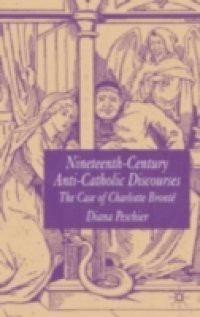By the middle of the Nineteenth-century much clearly gendered, anti-Catholic literature was produced for the Protestant middle classes. Nineteenth-Century Anti-Catholic Discourses explores how this writing generated a series of popular anti-Catholic images and looks towards the cultural, social and historical foundation of these representations. By examining the motifs of the nun, the Jesuit and the vulnerable Protestant girl alongside the controversial subjects of confession, patriarchy and a discourse of fear, this book places the novels of Charlotte Bronte within the framework of Victorian social ideologies, in particular the climate created by the rise of anti-Catholicism. It thus provides alternative readings of her work

